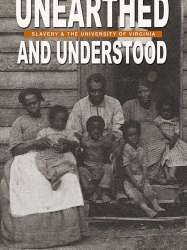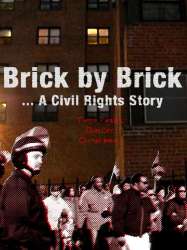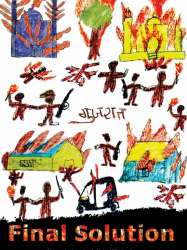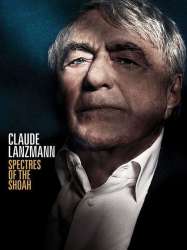Films with theme "Documentary films about racism", sorted by revenue

Genres Documentary, Historical
Themes Films about films, Films about racism, Films about religion, Documentary films about business, Documentary films about the film industry, Documentary films about racism, Documentary films about law, Documentary films about war, Documentary films about historical events, Documentary films about religion, Political films, Films about Jews and Judaism, Documentary films about World War II, Documentary films about films
Actors Christopher Plummer, Budd Schulberg
Le 20 novembre 1945 commence, au palais de justice de Nuremberg, le premier procès intenté par une instance judiciaire internationale. Sur le banc des accusés : 24 responsables du IIIe Reich nazi. Ce film, montage des principaux moments du procès, place le spectateur au coeur des audiences...

Unearth (2013)
, 18minutesDirected by Eduardo Montes-Bradley
Origin USA
Themes Films about slavery, Films about racism, Documentary films about racism, Documentary films about law, Documentary films about historical events
 , 1h2
, 1h2Genres War, Documentary
Themes Films about children, Films about racism, Films about religion, Documentary films about racism, Documentary films about law, Documentary films about war, Documentary films about historical events, Documentary films about religion, Political films, Films about Jews and Judaism, Documentary films about World War II
Actors Alan Alda, Mamie Gummer

Deepsouth (2012)
, 1h12Origin USA
Themes Medical-themed films, Films about racism, Films about sexuality, LGBT-related films, Documentary films about racism, Documentary films about law, Documentary films about health care, LGBT-related films, HIV/AIDS in film, LGBT-related film
Joshua Alexander, a college student, seeks the support of an underground gay family miles away from his suffocating Mississippi Delta hometown. With no funds and few resources, Monica Johnson tries tirelessly to unite reluctant participants at her annual HIV retreat in rural Louisiana. Kathie Hiers, an Alabama activist, spends 120 days a year on the road fighting a bureaucracy that continues to ignore the South.

Hate Crimes in the Heartland (2014)
, 52minutesOrigin USA
Themes Films about racism, Documentary films about racism, Documentary films about law
The film examines the underlying racial tensions in Tulsa, Oklahoma, through two central events, the 1921 race riots and the 2012 "Good Friday Murders." Through interviews with a variety of scholars and public figures, the documentary explores the roots of American racial animosity, presenting Tulsa as a microcosm of the American social, cultural, and racial landscape, and scrutinizing the role of the media in controlling information, and influencing public response and the justice system.

Night Will Fall (2014)
, 1h15Genres Documentary
Themes Films about racism, Films about religion, Documentary films about racism, Documentary films about law, Documentary films about war, Documentary films about historical events, Documentary films about religion, Political films, Films about Jews and Judaism, Documentary films about World War II
Actors Alfred Hitchcock, Jasper Britton, Billy Wilder, Helena Bonham Carter
The film intersperses documentary film from German Concentration Camps Factual Survey, the 1945 documentary, with recent interviews with survivors and liberators. The producers, editors and cameramen who produced the 1945 documentary are featured, and its long delay is explored.

Welcome to Leith (2015)
Genres Thriller, Documentary, Horror, Crime, Western
Themes Films about racism, Documentary films about racism, Documentary films about law

All Power to the People! (1996)
Origin USA
Genres Documentary, Historical
Themes Films about racism, Documentary films about racism, Documentary films about law, Documentary films about historical events, Documentary films about politics, Political films
Actors Dennis Banks, Marlon Brando, Walter Cronkite, Gordon Parks, Ronald Reagan

Décryptage (2003)
Directed by Philippe Bensoussan
Origin France
Genres Documentary
Themes Films set in Africa, Films about racism, Films about religion, Documentary films about racism, Documentary films about law, Documentary films about war, Documentary films about historical events, Documentary films about politics, Documentary films about religion, Political films, Films about Jews and Judaism
Ce documentaire tente de décrypter les commentaires tenus sur le conflit israélo-palestinien et de répondre aux questions suivantes : comment parle-t-on du conflit au Proche Orient ? Comment parle-t-on de ses protagonistes ? Pourquoi ces troubles font-ils l'objet de passions aussi fortes ? Quelle est la mécanique des médias qui instruisent l'opinion ?

Genres Documentary
Themes Films about racism, Documentary films about racism, Documentary films about law

Dear Mandela (2012)
Genres Documentary
Themes Films set in Africa, Films about racism, Documentary films about racism, Documentary films about law, Documentary films about politics, Political films

Final Solution (2004)
Genres Documentary
Themes Films about racism, Films about terrorism, Documentary films about racism, Documentary films about law, Documentary films about war, Documentary films about historical events, Documentary films about politics, Documentary films about terrorism, Political films
Part 1: Pride and Genocide deals with the carnage and its immediate aftermath. It examines the patterns of pre-planned genocidal violence (by right-wing Hindutva cadres), which many claim was state-supported, if not state-sponsored. The film reconstructs through eyewitness accounts the attack on Gulbarg and Patiya (Ahmedabad) and acts of barbaric violence against Moslem women at Eral and Delol/Kalol (Panchmahals) even as Chief Minister Modi traverses the state on his Gaurav Yatra

The Zone (2003)
, 10minutesGenres Documentary
Themes Films about racism, Documentary films about racism, Documentary films about law, Documentary films about cities

Themes Films set in Africa, Films about racism, Documentary films about racism, Documentary films about law, Documentary films about politics, Political films
 , 40minutes
, 40minutesOrigin USA
Genres Documentary
Themes Films about racism, Films about religion, Documentary films about business, Documentary films about the film industry, Documentary films about racism, Documentary films about law, Documentary films about war, Documentary films about historical events, Documentary films about religion, Political films, Films about Jews and Judaism, Documentary films about World War II
Actors Claude Lanzmann, Marcel Ophuls, France Roche, Jean-Paul Sartre
Centré sur un entretien où Claude Lanzmann revient sur sa vie et sur la réalisation de Shoah - les choix initiaux, les embûches, les dangers, la recherche de moyens pour mener à bien cette entreprise, l’épuisement…, Adam Benzine donne aussi à voir des fragments des rushes de Shoah.
 Connection
Connection